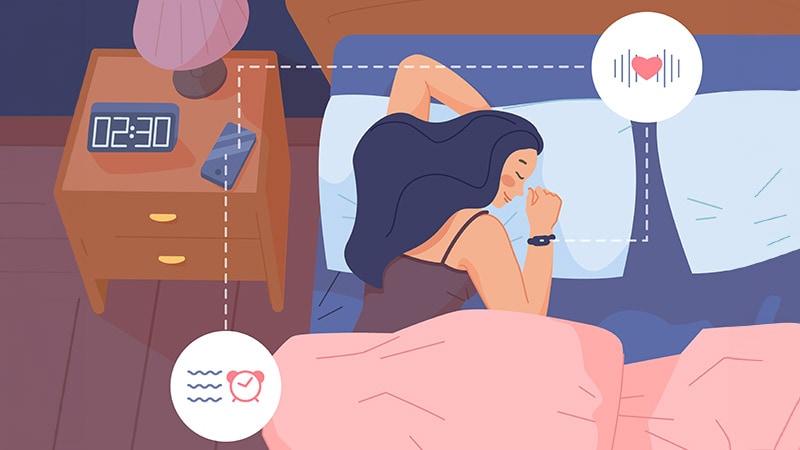Long-term study with over 6000 patients using Fitbit shows direct correlation with irregular sleep and negative health outcomes.
This article really exemplifies the point that I’ve been making for years, which is, “ I would rather take 80% accuracy over a 42 days than 100% accuracy with one night in a sleep lab.” The scientists in this article agree that we can gain more insight when looking into the outcomes of long-term behavioral sleep patterns. Some of the notable health consequences that were found include:
“REM sleep and deep sleep were inversely associated with the odds of incident heart rhythm and heart rate abnormalities. Each percent increase in REM sleep was associated with a reduced incidence of atrial fibrillation (odds ratio [OR], 0.86), atrial flutter (OR, 0.78), and sinoatrial node dysfunction/bradycardia (OR, 0.72). A higher percentage of deep sleep was associated with reduced odds of atrial fibrillation (OR, 0.87), major depressive disorder (OR, 0.93), and anxiety disorder (OR, 0.94). ”
“Increased irregular sleep was significantly associated with increased odds of incident obesity (OR, 1.49), hyperlipidemia (OR, 1.39), hypertension (OR, 1.56), as well as major depressive disorder (OR, 1.75), anxiety disorder (OR, 1.55), and bipolar disorder (OR, 2.27).”
“The researchers also identified J-shaped associations between average daily sleep duration and hypertension (P for nonlinearity = .003), as well as major depressive disorder and generalized anxiety disorder (both P < .001). ”
My questions to our community on this forum are: “Because all of you have used non-clinical sleep measurement devices, is experience telling you there could be errors in the findings of this article?” and “How can we use this information to improve health outcomes in our community?”







